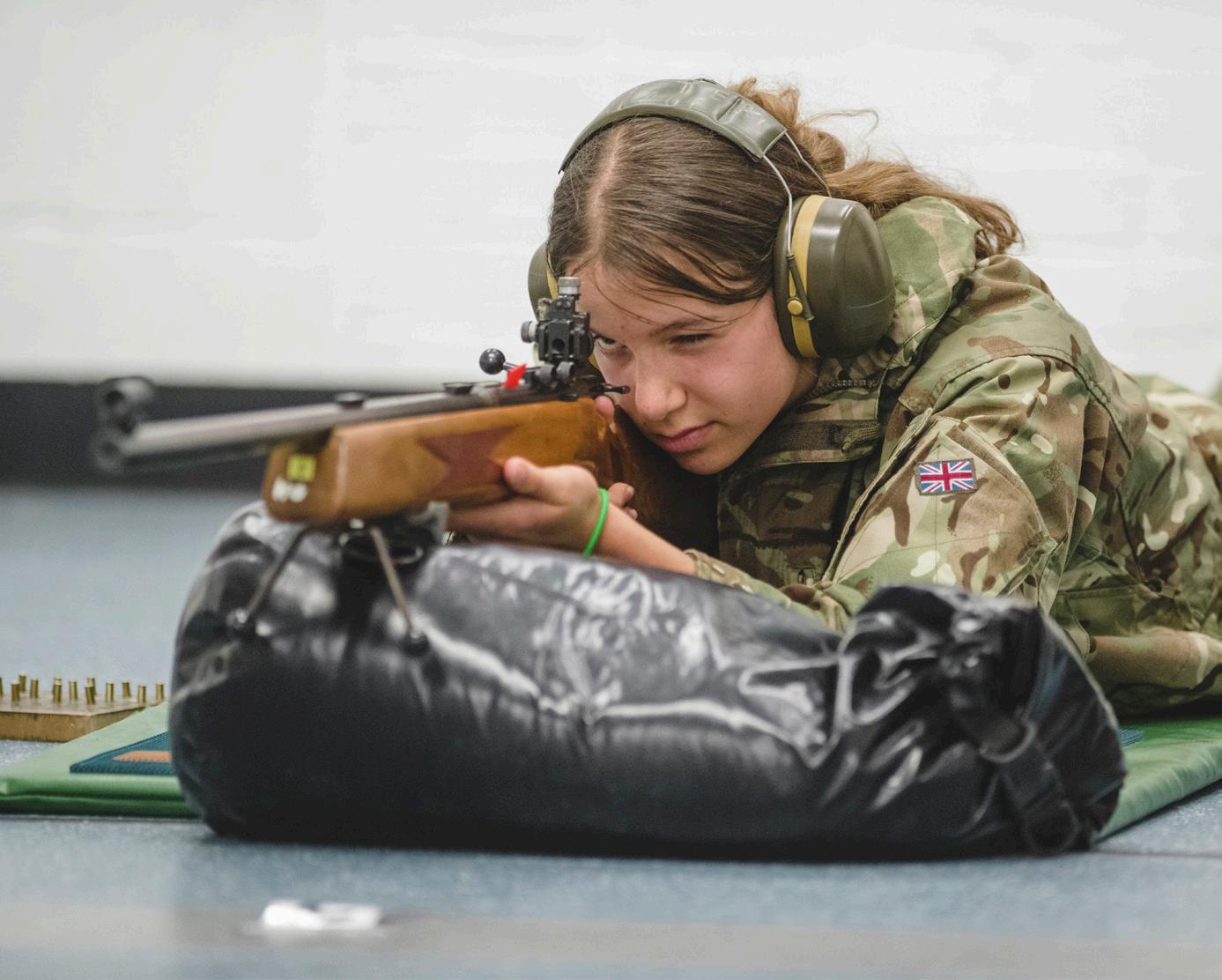
9 minute read
Extra Curricular Bursaries and
Extra Curricular
Exeter School belives that education in the widest sense stretches way beyond the constraints of classrooms, timetables and examinations. Outside of the 40-period academic week, opportunities abound for enrichment beyond the curriculum.
Advertisement
COMBINED CADET FORCE (CCF) The activities of the CCF are designed to develop powers of leadership, responsibility, confidence, and selfdiscipline, as well as providing a basic knowledge of the Services. There is a recruit training phase at the start of the Middle Fifth where you learn basic skills in drill, first aid and navigation. There is also the opportunity for target rifle shooting, a swim test, and basic signals skills before choosing to join either the Royal Navy (RN), Army or Royal Air Force (RAF) section. All sections offer a wide range of opportunities including two field day activities per year, a certificated first aid course, self-defence, climbing and lifesaving skills. Each section runs a summer camp and there is an adventurous training camp which runs in the Easter holidays. The Ministry of Defence run courses which are available to all cadets.
Much of the training provided can be counted towards a Duke of Edinburgh’s Award and you have the chance to do your bronze expedition in the Middle Fifth. This is only offered by the RN and RAF sections. Some cadets may decide to aim for silver and gold Duke of Edinburgh’s Awards in the sixth form. RN section: You learn RN knowledge and skills. There is an overnight expedition which counts towards your bronze Duke of Edinburgh’s Award. You take part in a range of water-based activities including sailing and kayaking and can work towards your RYA sailing qualifications from level 1 to advanced levels. You also get the opportunity to attend the sinking ship simulator and firefighting trip to HMS Raleigh.
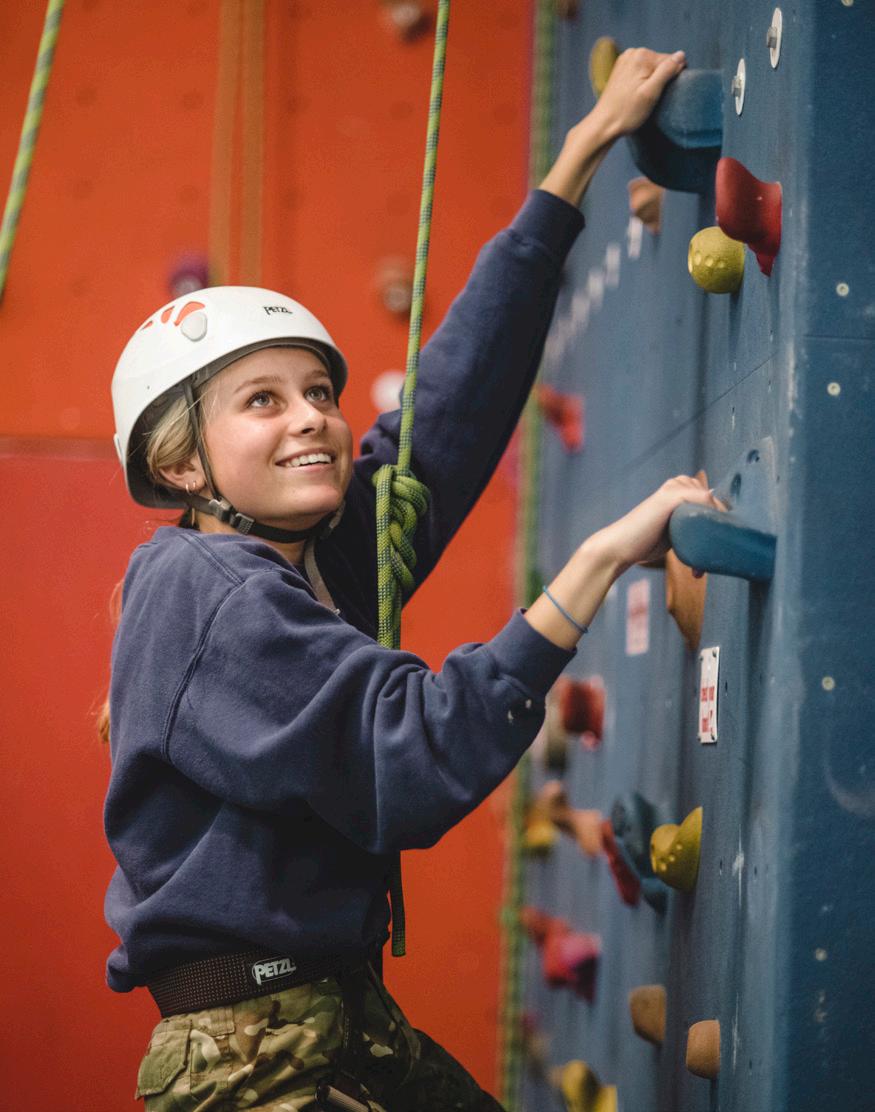
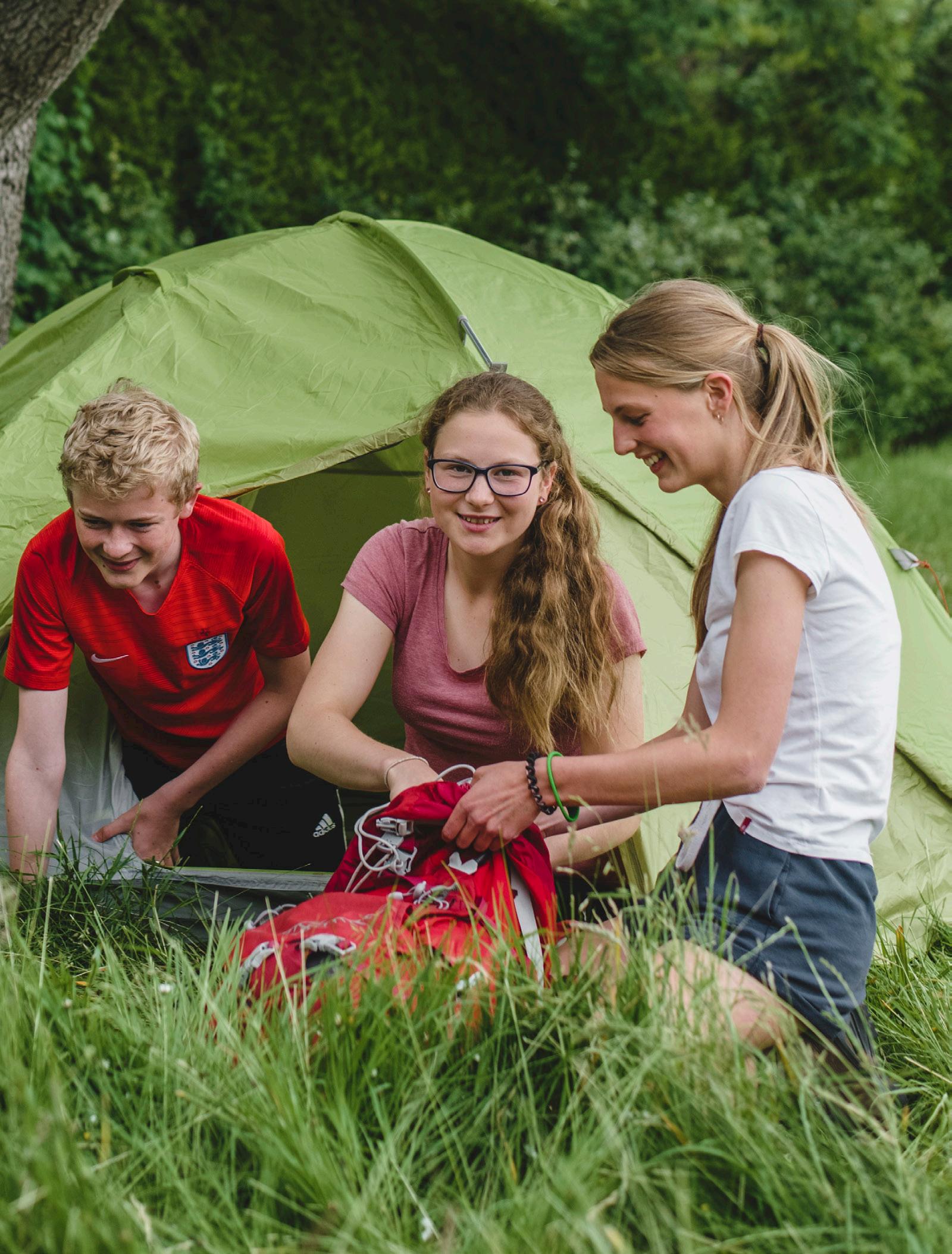
Army section: you are given an introduction into all the skills involved in basic infantry training, thereby developing the ability to work as part of a team and core leadership skills. You will study infantry techniques, signals, fieldcraft, tactics and safe weapon handling. There is an overnight exercise, and you will get to take part in 5.56 mm blank firing with the L98 A2 cadet rifle. RAF section: you have opportunities for leadership, teamwork and there is a training syllabus which allowing cadets to reach nationally recognised RAF proficiency levels 1, 2, 3 and 4. You are able to fly light aircraft (Grob Tutors) at MOD Boscombe Down alongside trained pilots. The RAF programme also includes an annual night exercise and use of the school’s flight simulator. A team is entered into the Royal Air Squadron Trophy Competition each year. DUKE OF EDINBURGH’S AWARD The Duke of Edinburgh’s award is universally recognised as one of the best programmes for the personal development of young people. The school is determined to make the award enjoyable, challenging and of the highest quality and the widest reach. We run the gold, silver and bronze award schemes. For the expedition section we are ideally located to take advantage of the beautiful Devon countryside, including both Dartmoor and Exmoor. Alongside walking expeditions, we have recently started to take to the water with both sea kayaking and paddle boarding expeditions. Each level of the award is split into several sections: volunteering, skills, physical recreation, expeditions, and, for gold only, a residential project. Participation in the award will help you develop, mature, and become selfreliant.
GAMES Exeter School sport gives you the opportunity to take part in a positive activity away from your academic studies in well-staffed, excellent facilities. Sport plays an important role in the life of Exeter School. You will have the opportunity to immerse yourself in a wealth of social and competitive sport. The central aim is for you to develop an interest in, and enthusiasm for, physical activity while nurturing your independence, self-confidence, leadership, and teamwork. We have a thriving programme of clubs with the opportunity to participate in more than 20 sports at lunchtime and after school. Exeter School’s 25-acre site is well equipped with a range of firstclass sports facilities. In the Middle Fifth, you will have a double period of games on a Thursday afternoon. The focus during this time is on the major team sports of each term: rugby and girls’ hockey, boys’ hockey and netball, cricket and tennis. Once teams are selected, there will be opportunity for all pupils to develop and progress through access to excellent coaching, skill drills, small-sided games, and fixture opportunities. However, for pupils who are not involved in these sporting opportunities a number of options are on offer, with the aim of ensuring that pupils are engaged and challenged whilst providing a pathway for each pupil to participate in a sport or physical activity that they enjoy and are passionate about. When you reach the Upper Fifth, you have a games afternoon alongside the sixth form on a Wednesday. There is a far wider range of options available that includes individual and team sports. You have a choice of options at the start of each term, which you will commit to for the duration of the term. You are expected to wear school crested sports kit for games sessions. Choices in the Upper Fifth can include: hockey, rugby, netball, football, cricket, badminton, body conditioning, climbing, cross country, fitness rounders, spin, squash, swimming, shooting, table tennis, tennis.
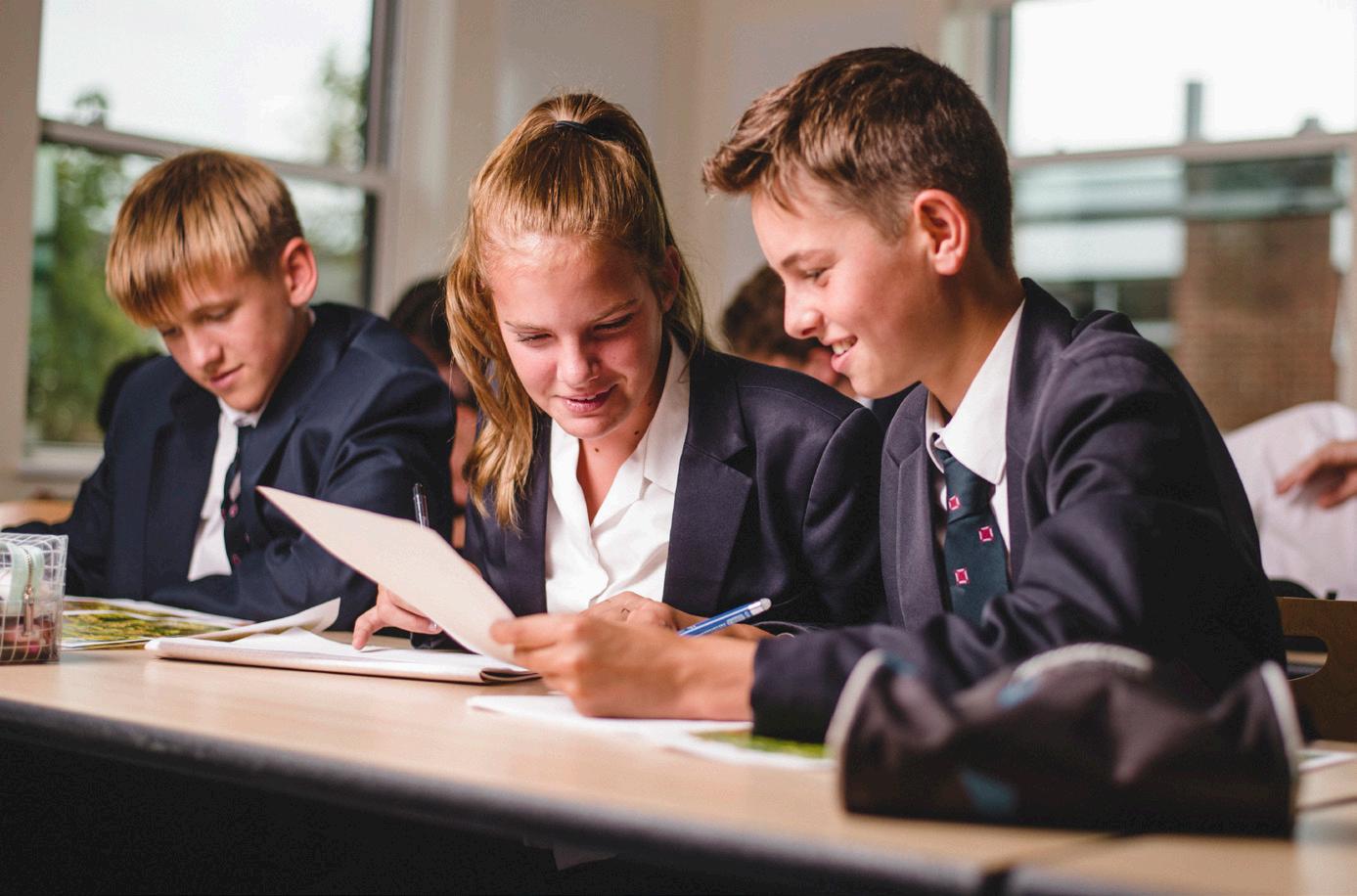

PSHE At the heart of the PSHE education at Exeter School our aim is to help pupils stay safe, healthy and prepared for life’s challenges and opportunities. It is a school curriculum subject through which our pupils develop the knowledge, skills and attributes they need to manage their lives, now and in the future in our modern and rapidly changing world. RSE (Relationships and Sex Education), is embedded within our PSHE curriculum. It is up to date and inline with the statutory guidance for ‘Relationships Education, Relationships and Sex Education (RSE) and Health Education’ published by the Department for Education in June 2019. RSE is delivered sensitively and age appropriately to our pupils in accordance with the advice from the PSHE Association. Years 10–11: delivered through assemblies and in form time through specially designed activities by house staff and form tutors.
In addition, all year groups experience a programme of delivery by form tutors through weekly themes and resources and additional form periods. PSHE covers a wide range of topics including personal wellbeing and self-esteem, relationship and sex education, financial capability, online safety and discrimination. We enrich the programme throughout they year by inviting guest speakers, who are specialists in their fields, to cover areas from good mental health, sex and relationship education and healthy eating and body image. CAREERS You are encouraged to think about and discuss possible future careers throughout your time at Exeter School. There are assemblies and form time sessions focusing on careers as well as key events that you are encouraged to
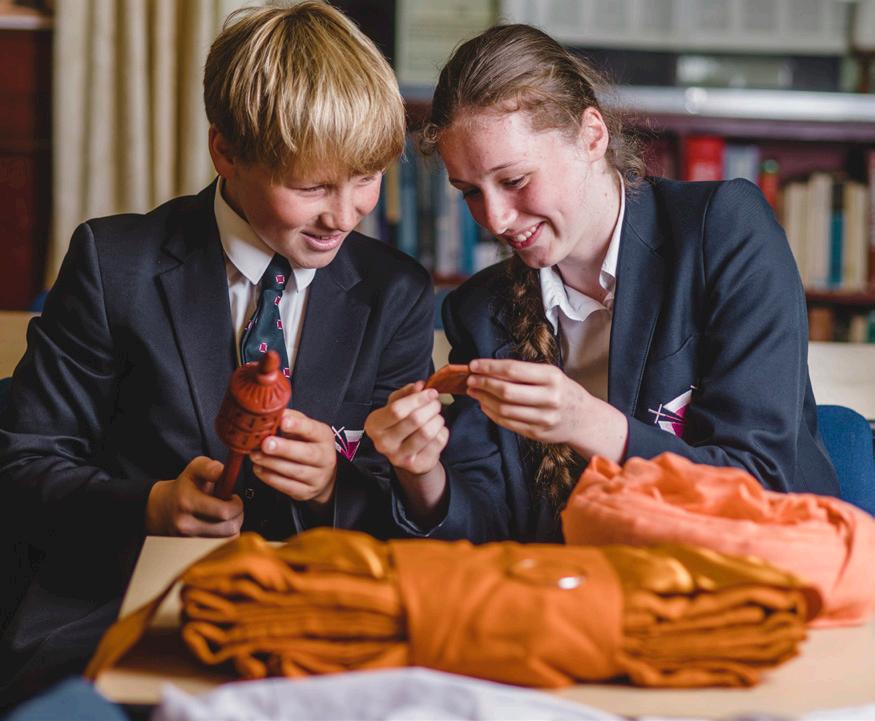
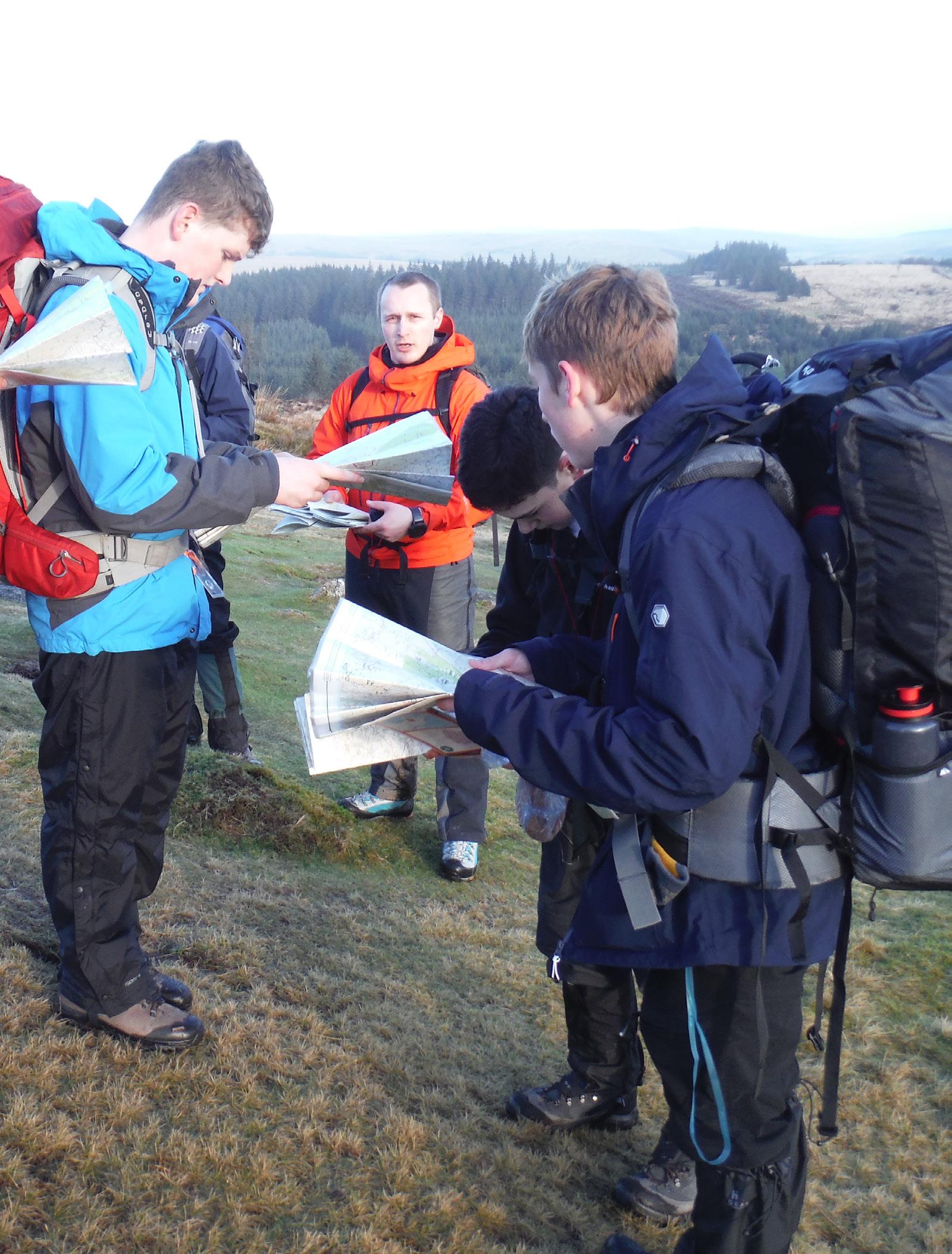
attend. It is important to try to think about what careers you might find enjoyable and satisfying and there is a host information available to you, both in the school library and on the school intranet. You can take part in the Morrisby online careers programme in the Middle Fifth which, along with other tools, can be used to help you explore what your skills, interests and priorities are.
Mrs Ruth Cheesman is the school’s careers and higher education adviser and is based in the school library. She is always keen to offer personalised guidance and advice at any point during the year whether it is by email, phone or in person. RELIGIOUS EDUCATION You will have one period of nonexaminable religious education on your timetable each week in both the Middle Fifth and Upper Fifth. We do not study religious issues or traditions in depth, as we do in religious studies; instead, we take a broader look at some of the big issues in our society and in our personal lives, opening up questions to think about, but not necessarily offering answers, stimulating you to think and make decisions for yourself. The aim is to help you make connections between all that you are learning about the world and its complex questions, and the adult beliefs that you are in the process of forming about what’s right, how we should behave and what God or religion has to do with it all.
The topics covered are varied and do not overlap with issues considered in the RS GCSE course. Possible topics include racism, fair trade, medical ethics and the Holocaust. pressures, there is freedom to take plenty of time to consider and debate ideas and to arrive at our own personal judgments. It is a great way of putting the rest of what you are studying for GCSE into a broader context and to prepare for the sixth form experience. TEN TORS The Ten Tors challenge takes place each year in early May on Dartmoor. The event is organised by the Army and involves 2,400 young people in 400 teams completing a two-day trek. Exeter School enters teams from the Middle Fifth (Year 10) for the 35-mile expedition and from the Lower Sixth for the 45-mile and 55-mile expeditions. Ten Tors training is a big part of the Middle Fifth (Year 10) year for many Exeter School pupils. Although not all pupils can take part in the Ten Tors challenge, often up to half the year group take part in the training walks and activities as part of Ten Tors training. All Middle Fifth and Lower Sixth (Year 10 and 12) pupils can apply to do the training, regardless of their involvement with the Combined Cadet Force (CCF) or the Duke of Edinburgh’s Award Scheme.
The Ten Tors season begins in October with the Abbots’ Way Walk, a challenging day walk from Buckfast Abbey to Tavistock. Whilst not mandatory, many pupils use it as a taster to help them decide whether to apply for training. During the autumn half term there are opportunities to attend National Navigation Award Scheme (NNAS) training courses, which develops important skills required to complete a Ten Tors route. Over the winter and early spring, a series of training weekends in school and on Dartmoor culminates in the 1633 Challenge, the final phase in team selection and the school’s equivalent to the Ten Tors challenge. Following this, teams are selected and train for one more weekend before embarking on the event itself.
The Ten Tors weekend is an exciting spectacle. Arriving at Okehampton Camp on Friday, pupils set off early on the Saturday for a two-day expedition, with many friends and family watching on. All being well, they return on the Sunday to be cheered in by well-wishers and to receive their medals.


